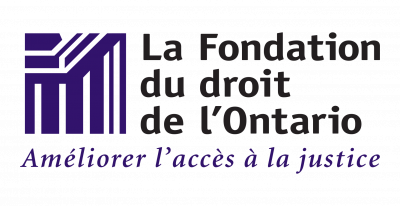
With a Responsive grant from The Law Foundation of Ontario, the CNIB Foundation has developed and launched its first legal education program, called Know Your Rights.
The CNIB Foundation is a non-profit organization that offers programs and advocacy to empower people impacted by blindness to live their dreams and tear down barriers to inclusion.
Know Your Rights is a series of plain-language, public legal information handbooks, videos, and training workshops to empower Ontarians who are blind, partially sighted, and Deafblind to better understand their rights, navigate the legal system, and self-advocate to challenge discrimination.
In addition to being led by two lawyers, the development of the Know Your Rights project was informed by a volunteer Working Group, a scan of existing legal information materials, eight focus groups, and collaborations with community, institutional, and legal partners such as ARCH Disability Law Centre and Community Legal Education Ontario. The lessons and insights from these initiatives helped CNIB to prioritize the public legal education content into seven topics: education; employment; housing; healthcare; transportation and built environment; government and consumer services; and self-advocacy and essential legal information.
Each handbook focuses on one of these topics and includes an overview, common questions, and links to resources and community supports. They are published in English, French, and in a range of accessible formats. The videos portray real-life scenarios that people with low vision experience, showing both the appropriate, and inappropriate, ways to serve them. For example, how to take someone’s medical history or ask for forms to be filled out at a doctor’s office. The handbooks and videos can be found on CNIB’s website here.
As part of the Know Your Rights project, training sessions were delivered to frontline workers and members of the sight loss community in Barrie, London, Ottawa, and Toronto. There was also a Law Society of Ontario-accredited professional development training for lawyers and paralegals. It featured a talk by Crown prosecutor Jason Mitschele, who shared his own experience with blindness, and it walked the legal professionals through case studies to help them better understand, accommodate, and serve clients with sight loss.
Know Your Rights is being well-received and CNIB has committed to the program going forward. Since its launch, CNIB staff from across Ontario have requested to have Know Your Rights as a mandatory training and a collaboration with Pro Bono Students Canada and Western Law in London was started to expand training sessions to CNIB clients and to create additional content for the legal information handbooks.


